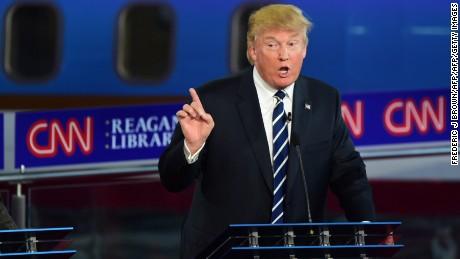We have a problem, Houston: with Super Tuesday done, we are now entering the winner-take-all stage of the GOP nomination process. However, the threat of businessman Donald Trump’s candidacy is real and substantial. Facing the headwinds of political calculus, it is clear that the GOP needs to quickly consolidate behind a candidate who is not Trump. The GOP needs to unite behind someone who best represents true conservatism with the strength, intelligence and fortitude requisite for modern American leadership.
Until recently, the GOP has been mainly on the defensive, neutralizing and deflecting attacks from Trump. For many weeks, other GOP campaigns did not take on Trump with full-on brunt force. Instead, they repeatedly used strong references and appealed to voters with their better, more detailed platforms. They did not sink to the level of ad hominem attack and abuse of identity politics that defined Trump’s emotional campaign. Whether on the debate stage or at a campaign rally, the candidates stuck to articulating their set of policies, ideas, and goals on a variety (not just five, like Trump) of national issues.
For instance, have John Kasich and Marco Rubio have detailed energy plans that discuss onshore energy development, the Keystone XL pipeline and EPA regulatory complications, among others. Trump has yet to present an energy policy. These are all positive actions, but they have not been enough to stop Trump. Now, we’re desperately short on time. The moment has come to supplement those traditional means with something stronger and sharper: directly exposing, emphasizing and converting Trump’s false strengths and faux-conservatism into high-damage weaknesses and liabilities.
For starters, the GOP has renewed the classic political strategy of attacking an opponent’s strengths instead of their weaknesses. We saw that happen big-time in the CNN-Telemundo co-hosted debate in Houston, Texas. Specifically, Senators Marco Rubio and Ted Cruz extracted and exposed Trump’s crony business successes, non-existent political integrity and lack of substance.
Rubio revealed Trump’s history of using illegal immigrant workers to build his real estate projects and total lack of viable healthcare policy. Cruz attacked Trump’s flip-flopping stance on issues such as immigration and political donations. Both brought out Trump’s profound inability to hold critical and civil discourse. As a result of these punches, Trump swiftly lost his typical smugness and bravado. He fumbled on the issues that were his pillars of strength. He was cast out in the open as a hollow, flip-flopping, agitated candidate.
Post-debate, conservative commentators and supporters were more rigorous and proactive than ever to shed light on Trump’s record (i.e. videos of Trump refusing to condemn the white-supremacist Ku Klux Klan circulating in a frenzy). The hashtag #NeverTrump is being used to defeat the Twitter clout of Trump and his supporters. Candidates and political representatives from all levels have doubled-down their efforts to show voters the real face of Trump. As a result, we are seeing Trump’s lead in several primary states decreasing, albeit slowly.
Indeed, there will still be individuals from all political backgrounds who will continue to staunchly support the New York billionaire. The fact that Trump is accumulating political endorsements from people like Governor Chris Christie is also frustrating. If such highly-regarded Republicans commit to Trump, conservatives will feel further torn apart from the party they trust to uphold rational conservative values.
As such, for those who are on the fence or discouraged by Trump’s seemingly inevitable victory, the GOP’s all-out forcefulness and assertiveness is crucial to convincing its supporters that the outcome must, can and will be different.
Trump’s party is not the party of Lincoln and Reagan. It is not the party of rational Republicans and true conservatives. It is not the party of an American democracy. It must never be, and if the GOP wins this uphill battle, it will not.




